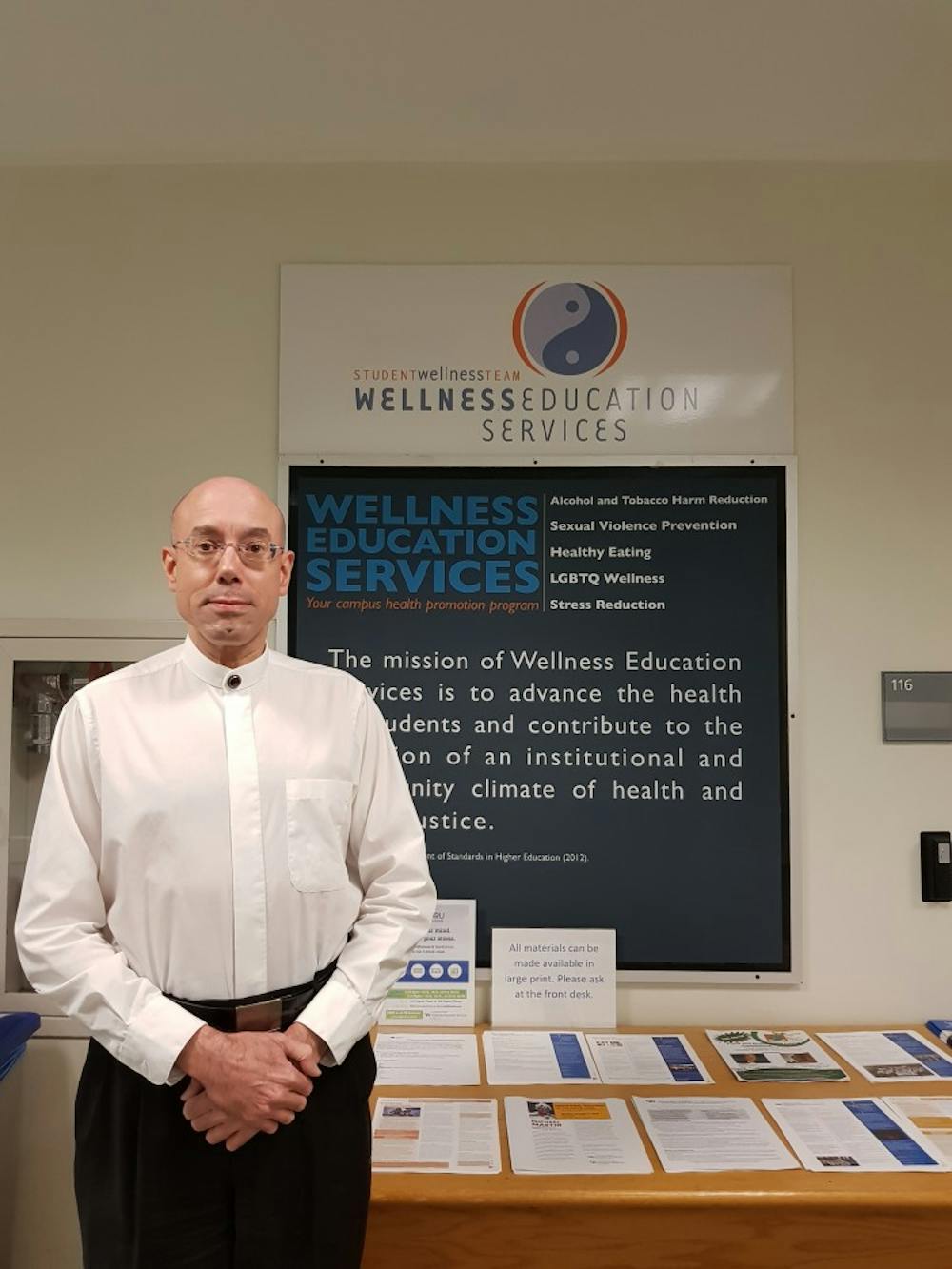One in five women experience sexual violence while in college, according to the National Sexual Violence Resource Center. Forty-eight students have experienced sexual violence after arriving to UB, according to UB’s 2017-18 Sexual Assault Prevention Program.
Through education and workshops, the Department of Chemical and Biological Engineering is looking to make a change.
The department organized nine “Violence Prevention and Safety” workshops in September. It hosted the workshops along with UB Health Promotion (formerly Wellness Education Services), which will host a number of violence prevention workshops in November.
The chemical and biological engineering department has organized training workshops for students on defense against sexual assaults for roughly three years. The workshops include safety and self-defense training for women; conducted by University Police and a “Violence against Women - Awareness and Cultural Change Training for Men” by Health Promotion.
Aaron Maracle is Health Promotion’s assistant violence prevention specialist. Maracle said the workshop aimed to help students understand that sexual violence “is an issue here on campus” and one they can do something about.
“We want students to know that if they experience sexual violence, they are not alone. We want them to feel comfortable reporting to us about it because we want them to get the help that they want,” Maracle said.
During Health Promotion’s Sept. 18 workshop, Maracle talked to students about ways to identify potential risks of sexual assault and the risk-reduction measures. He shared the importance of affirmative consent for sexual acts. He also explained the concept of “bystander empowerment,” or the ability to identify violence and having the intention to step in and help.
Maracle defined the difference between prevention and risk-reduction methods. He said prevention is having conversations about topics such as institutional violence and the role of men in helping to prevent violence.
He said someone can’t be completely safe as it’s hard to predict a perpetrator’s actions, but identifying “negative predatorial behaviors” can reduce risk.
The workshop ended with information on the Equity, Diversity and Inclusion Office and Health Promotion. Counseling services and confidential resources are available for students, as well, and crisis service advocates are free to the UB community.
Wahida Jannat, a sophomore chemical engineering major, said she feels UB is a relatively safe campus and the school is actively providing assistance to students, but she thinks more can be done.
“Right now, this workshop is made mandatory for only chemical and biological engineering students. But it should be made required for every single major, so that everyone can know what is going on in the campus,” Jannat said.
Johannes Nitsche, a SUNY distinguished professor in the chemical and biological engineering department, said his department started these types of programs.
Nitsche said he was shocked to learn the statistics of women soldiers being victimized in the U.S. He said he was troubled to learn that UB had a similar amount of incidents, too, and he felt the need to respond.
The training workshop is one of the first few workshops conducted by the department this school year, according to Nitsche.
Nitsche said the department noticed an inconsistent workshop attendance. So, the department made it mandatory for majors to attend the workshop for the “common good” of students.
Students who have been personally affected by sexual violence or have a valid reason for not attending, however, are given the option to opt out of the workshop.
Nitsche said he also went on a hunger strike after an initial rejection to incorporate the training in the department’s EAS 199 seminars. He said although sexual violence is an “ugly topic,” talking about the topic with caution is crucial.
He said classrooms are an excellent venue to reaching out to the mass majority of students. Nitsche said that while it is the common consensus that conducting such discussions in classes is important, there has been little action taken.
“I bring up this subject in my first and last classes and in between at times. When addressed in an appropriate manner, it in return shows that students are willing to reach out to help,” Nitsche said.
Nitsche proposes all UB 199 seminars incorporate sexual assault and violence awareness trainings.
The chemical and biological engineering department concluded its workshops last month but will be organizing more at the beginning of spring 2019.
Next month, Health Promotion will host a “How to help a sexual violence survivor” workshop on Nov. 7. During the workshop, “participants will learn how to help others recover from rape and sexual assault, tap into local resources and get involved with prevention efforts at UB,” according to the office’s website.
The event is free, and Health Promotion does not recommend people with sexual violence experiences attend the event.
Shamini Priya Gopalakrishna is a contributing writer and can be reached at features@ubspectrum.com.





